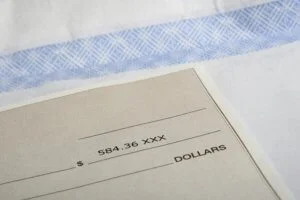If you have an email or social media account, there’s a good chance you’ve seen a scam or two. Maybe it’s a pop-up that looks like a computer virus warning but is really trying to steal your password. Maybe you’ve been approached by foreign royalty.
Does this look familiar?
My Dearest Jane Doe,
My name is Prince Phillip from a far-off land you never may have heard of. I am bewitched by your picture and must know you. Alas, my vast fortunes be stuck in a holding account, but if you please send me $35,000, I come visit you and I share my huge monies with you. I promise to pay you back with interest when my account opens.
Cue eye roll.

We’ll admit, not every scam is this easy to spot. Home buying scams and ripoffs can be found online, over the phone, or on the bandit signs and flyers littering your neighborhood.
Maybe you’ve seen the signs that proclaim, “We Buy Houses” and have a phone number to call. Every year, bogus home buyers take advantage of people just like you.
Scammers, con artists, unscrupulous “business” individuals, and fake companies lurk around every corner. If only all scams were as easy to spot as the classic “prince from a foreign land” con.
“We buy houses” ripoffs cost innocent victims thousands of dollars and the best way to protect yourself from falling prey to fake house buyers is to familiarize yourself with what to look out for.
What Are ‘We Buy Houses’ Ripoffs?
First, let’s define a “we buy houses scam” so we’re all on the same page. Buy your house scams have been around a long time, but really amped up their game during the housing crisis of 2008.
The process is pretty simple. You see a sign that says ‘We Buy Houses’, and call the number. However, the odds are not in your favor of it being a legitimate business.
Why Are House Buying Scams Everywhere?
Home buying scams are so prevalent because it’s easy. Anyone can put a sign on a corner or at a busy intersection declaring they are the savior for desperate home sellers.
No license, permit, or certification is required for an individual to claim they’re a home buyer or investor of real estate. While we like to think most people are honest, the reality is that liars and fake house buyers are everywhere.
Cheer up! It’s not all gloom and doom. We’re going to tell you how to spot a house buying scam and sidestep a potentially disastrous financial mistake.
The Scam Scenarios
Two of the most common home buying scams can be avoided if you know the inside scoop.
In Scam One, a home seller contacts what they think is a legitimate broker or home buying company. The number is boldly placed on a sign along with declarations like: “We buy houses in any condition!” or “We buy houses with cash!”.
When you eventually talk to the “buyer”, they say an administrative fee must be sent first. You agree to this charge and send it. Then it begins. The waiting. And more waiting.
It’s now more than a week later and you’ve not heard a peep, so you call the number. Maybe there’s recording, so you leave a message.
Then you’re ghosted. More than likely, the scammer changes the number and your money is gone.

Scam Two involves a bit more interaction with the con artist. The buyer, typically claiming to be a real estate investor, offers to buy your house for $65,000.
You receive a check, but the amount is for $72,000. Don’t jump for joy yet, the buyer confesses this was a mistake—the wrong amount was sent. But don’t worry! This has an easy fix.
All you have to do is send a wire transfer with the overage. They’ll be apologetic and assure you that this never happens, it must have been a clerical mistake. Because you’re a nice and honest person, you make the wire transfer.
After the money is sent, you discover the original check is bad. You’ve just wired $7,000 to a scammer and your house still isn’t sold.
Warning Signs It’s a Scam
Knowledge is power, and we can help you spot “we buy houses” ripoffs from a mile away. Red flags include but are not limited to:
- Use of bandit signs – legitimate house buying companies don’t do this
- Use of a free email service, which implies unprofessionalism
- Unprofessional phone etiquette: answering “Hello” versus “Quick Home Buyers, this is John, how can I help you?”
- No references when asked
- Sketchy or questionable references that can’t be verified
- No real estate license or other certification that designates training and knowledge of state and federal regulations/laws
- Not using professional forms or state-regulated documentation
- Extremely difficult to contact
- Uneasy or offended if you ask to have a third party (like an attorney) look over the contracts
- Offer to buy without ever looking at the house
The key money warning signs include:
- Administration or processing fees
- Eagerness to send the buyout money right away, even without seeing the house
- Eagerness to share their financials
You don’t have to fall victim to a home investor scam or cash for homes flyers, even if your property has sat on the market for a long time.
There are legitimate services out there that can and will buy your house. Rely on our agents for an honest and legitimate transaction.




